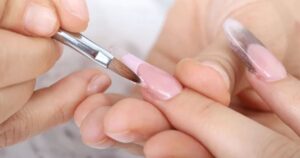One of the main reasons you might be losing hair on your lower legs is genetics. Just like the color of your hair or the shape of your nose, your genes can also determine the amount of hair on your body.
Another reason for hair loss on your lower legs could be related to age. As boys age and enter puberty, their bodies undergo many changes, including hormonal changes. Do you know about Why Am I Losing Hair On My Lower Legs Male? These changes can affect hair growth in different body parts, including your legs. Sometimes, as you grow older, the hair on your legs might become thinner or even fall out. It’s a normal part of the aging process and happens to many people.
Certain medical conditions or treatments could cause hair loss on your lower legs. Some states, like eczema or alopecia areata, can affect hair growth. Certain medications or treatments can cause hair loss on the scalp and other parts of the body, including the legs.
Losing Hair from Lower Legs
Hair loss can be a worrisome issue, even for young boys. If you have noticed that you are losing hair on your lower legs, you might wonder why it’s happening. Various factors can cause hair loss on the lower legs in males, and it’s essential to understand them to find the right solution. Let’s explore some common reasons for hair loss on the lower legs.

Lack of Hair Growth in Puberty
One common reason for hair loss on the lower legs in young males is the natural process of puberty. The body changes significantly during this time, and hair growth patterns can alter. Why Am I Losing Hair On My Lower Legs Male? It is possible that the hair on your lower legs hasn’t developed yet, and you might notice hair loss or thinning. Don’t worry; this is a temporary phase, and as you grow older, your leg hair will likely grow and become denser.
Hormonal Changes
Hormonal changes in the body can also contribute to hair loss in the lower legs. Hormones regulate hair growth, and any imbalance can affect hair growth patterns. Sometimes, hormonal fluctuations can occur due to factors like stress or diet changes if you suspect hormonal changes are causing your hair loss. It’s best to consult a doctor who can diagnose properly and suggest suitable treatment options.

Genetics and Family History
Genetics plays a significant role in determining hair growth patterns, including hair loss. If you have a family history of hair loss on the lower legs, you might experience the same condition. Genetic factors can influence leg hair thickness, density, and overall growth. While you can’t change your genes, understanding this aspect can help you come to terms with hair loss and find ways to manage it.
Skin Conditions
Certain skin conditions can also lead to hair loss on the lower legs. One such condition is alopecia areata, which causes hair loss patches on various body parts, including the legs. This condition occurs when the immune system mistakenly attacks the hair follicles, leading to hair loss. Suppose you notice circular patches of hair loss or have other symptoms like itching or redness. It is advisable to consult a dermatologist who can diagnose and recommend suitable treatments.
Excessive Hair Removal
Sometimes, hair loss on the lower legs can occur due to excessive hair removal methods. If you frequently shave, wax, or use hair removal creams on your legs. It can cause hair follicle damage, leading to hair loss. It is essential to be gentle while removing hair and avoid overdoing it. Give your skin and hair follicles time to recover between hair removal sessions. If you need help with the best methods for hair removal, consult an adult or a professional for guidance.
Other Factors
Apart from the reasons mentioned above, other factors can contribute to hair loss in the lower legs. Nutritional deficiencies, certain medications, and underlying medical conditions can also play a role if you suspect any of these factors might be causing your hair loss. It is crucial to seek medical advice to identify and address the root cause.
Taking Care of Your Lower Leg Hair
While hair loss on the lower legs can be a concern, there are some steps you can take to maintain healthy leg hair and promote growth:
Maintain a Balanced Diet
Eating a nutritious diet that includes vitamins and minerals essential for hair growth can help improve the health of your leg hair.
Avoid Excessive Hair Removal:
Limit harsh hair removal methods and allow your hair follicles time to recover.
Practice Good Hygiene:
Keep your lower legs clean and moisturized to maintain healthy hair follicles.
Reduce Stress:
Manage stress levels through exercise or spending time with friends and family. Stress can affect hormonal balance and contribute to hair loss.
Consult a Healthcare Professional:
If you have concerns about your hair loss, it’s best to consult a doctor or dermatologist. It can provide an accurate diagnosis and recommend appropriate treatments or lifestyle changes.
Remember, hair loss on the lower legs can be a temporary or manageable condition. It’s essential to be patient and take proactive steps to care for your leg hair.
Embracing Your Unique Features
Hair loss, whether on the lower legs or any other body part, is natural for many people. It’s important to remember that our physical appearance doesn’t define our worth or who we are as individuals. Embracing our unique features, including our leg hair, is crucial to developing self-confidence and self-acceptance.
Accepting Differences
Every person’s body is unique, and it’s natural for individuals to have different amounts and Losing hair growth patterns. Some people may have thick and abundant leg hair, while others may have little or none. These differences make us unique and should be celebrated rather than a cause for concern.
Developing Self-Confidence
Instead of worrying about Losing hair on your lower legs, build self-confidence. Remember that beauty comes from within and is not determined by external appearance. Engage in activities that make you feel good about yourself, spending time with supportive friends and family.
Talking to Others
Suppose you’re feeling self-conscious about your Losing hair. Talking to someone you trust can be helpful, such as a parent, sibling, or close friend. They can offer reassurance, perspective, and support. Often, you’ll find that others don’t notice or pay much attention to things you may be self-conscious about.
Finding Alternative Styles
If you’re uncomfortable with the appearance of Losing hair loss on your lower legs, there are options available to address it. You can experiment with different clothing styles to conceal your legs if that makes you feel more comfortable. It’s important to remember that you don’t have to hide or be ashamed of your body.
Seeking Professional Help
If Losing hair on your lower legs is causing significant distress, seek professional help. A dermatologist can test your situation and discuss potential treatment options if necessary. They can help you understand the underlying causes of your Losing hair and provide appropriate solutions.
Conclusion
In conclusion, Why Am I Losing Hair On My Lower Legs Male? Losing Hair loss on the lower legs in males can occur due to factors such as puberty and other underlying factors. It’s important to remember that hair loss is a natural part of life and doesn’t define your worth. Embracing your unique features, including your leg hair, is impotent for building self-confidence and developing self-acceptance.
If you’re concerned about Losing hair, it’s always best to consult a healthcare professional. This can provide proper diagnosis, guidance, and potential treatments. Remember to take care of your overall well-being by maintaining a balanced diet and seeking support from trusted individuals.
FAQ’s
Can poor circulation cause hair loss on the lower legs?
Yes, poor circulation can contribute to hair loss on the lower legs as it affects the delivery of nutrients and oxygen to the hair follicles.
Are there any skin conditions that can cause hair loss on the lower legs?
In some cases, skin conditions such as eczema or psoriasis can cause hair loss on the lower legs.
Can hormonal imbalances lead to hair loss on the lower legs?
Hormonal imbalances may contribute to hair loss on the lower legs.
Is genetics a factor in hair loss on the lower legs?
Genetic factors can play a role in Losing hair, including on the lower legs.
Is hair loss on the lower legs reversible?
The reversibility of Losing hair on the lower legs depends on the underlying cause. In some cases, addressing the root cause can help promote hair regrowth.








